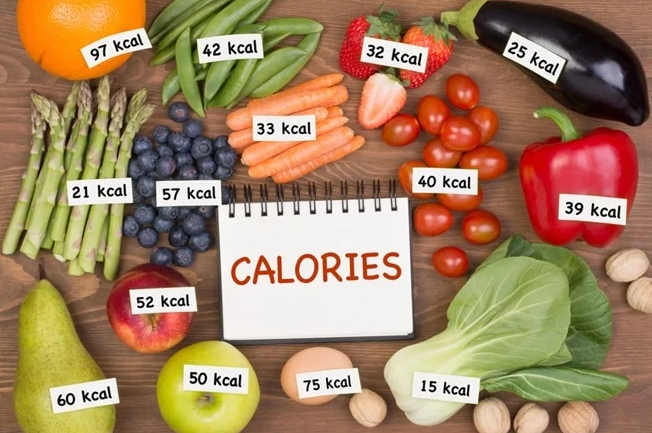The number of calories required for an average human being to survive and sustain metabolism and brain function varies depending on age, gender, body composition, activity level, and overall health.
However, as a general guideline, the average adult human needs approximately 2000-2500 calories per day to maintain their weight and sustain their bodily functions, including brain function. This is known as the Basal Metabolic Rate (BMR) and represents the number of calories the body needs to function at rest.
Remember that this is just an estimate, and individual calorie needs may vary. Therefore, it is always best to consult a healthcare professional or a registered dietitian for personalized advice on calorie intake based on individual factors.

How Long Can You Live On 300 Calories a Day?
Average-size men (197.9 pounds or 89.6 kg) and average (170.6 pounds 77.3 kg) women can not live on 300 calories per day. Humans can live on 300 calories a day for up to 21 days. After five days, the body’s glycogen stores will be depleted. After that, the body will start breaking down fat and muscle tissue to produce energy, leading to significant weight loss, weakness, fatigue, and death.
An infant’s caloric needs indeed increase as they grow, and a 5-pound infant may be able to survive on a lower calorie intake than a giant infant. However, it’s important to note that infants need sufficient calories, nutrients, and fluids to support their growth and development.
An infant’s calorie needs are typically determined by weight, age, and activity level. For example, a 5-pound infant may require around 300 calories daily to support their essential metabolic functions, including breathing, digestion, and circulation. However, this is just an estimate and may vary based on individual factors and health conditions.
As the infant grows and gains weight, their calorie needs also increase. If an infant receives only 300 calories per day beyond the point where it’s sufficient, they may start to experience growth failure, malnutrition, and other health problems. At this point, the infant may stop growing, get sick, and eventually, their health may deteriorate to the point where they risk dying.
Therefore, infants must receive adequate nutrition and medical care to support their growth and development. It’s recommended to consult with a healthcare professional or a registered dietitian for personalized advice on infant nutrition and feeding.
Can a person survive on 300 calories a day?
No, the average person cannot survive on 300 calories a day. Instead, the average adult human needs approximately 2000-2500 calories per day to maintain their weight and sustain their bodily functions, including brain function. This is known as the Basal Metabolic Rate (BMR) and represents the number of calories the body needs to function at rest.
Remember that this is just an estimate, and individual calorie needs may vary. Therefore, it is always best to consult a healthcare professional or a registered dietitian for personalized advice on calorie intake based on individual factors.
With the rise of various diet trends, consuming a limited number of calories a day, such as 300 calories, has become a topic of interest. However, it’s essential to understand that such a low intake of calories can be dangerous and potentially fatal. While humans can survive on 300 calories a day for a limited period, it can lead to severe health consequences.
First, let’s understand calories’ significance and role in the human body. Calories are a unit of energy, and our bodies require a certain amount of calories daily to function correctly. Every individual has a unique caloric requirement based on several factors, including age, sex, height, weight, and physical activity levels.
The average adult male requires about 2,500 calories daily, while the average adult female requires around 2,000 calories daily. However, living on 300 calories a day means that individuals consume a tiny fraction of what their bodies need, leading to severe health consequences.
First, it’s important to note that the body’s response to consuming a restriction of calories can differ based on an individual’s weight and diet. For example, overweight individuals may survive on 300 calories a day for more extended periods than individuals with a healthy weight because they have more stored fat to break down for energy.
But regardless of the individual’s weight, after five days of consuming 300 calories a day, the body’s glycogen stores will be depleted. Glycogen is a form of glucose that the body stores in the liver and muscles for energy. Once glycogen stores are exhausted, the body will break down fat and muscle tissue for energy, leading to significant weight loss.
However, the breakdown of fat and muscle tissues also has severe health consequences. During this period, the body enters a state of starvation, which triggers a series of physiological responses, such as fatigue, dizziness, and weakness. In addition, the body’s immune system becomes compromised, making individuals more susceptible to infections and diseases.
Moreover, after prolonged periods of consuming a restricted diet, the body becomes malnourished, leading to several vitamin and mineral deficiencies. These deficiencies affect various organs and bodily functions, leading to further health complications, such as hormone imbalances, hair loss, and even organ failure.
In conclusion, the idea that humans can live on 300 calories a day is dangerous, and it’s essential to understand the severe health consequences it can cause. While surviving such a low-calorie intake for a limited period is possible, the risks far outweigh the benefits. Therefore, instead of opting for restrictive diets, it’s essential to maintain a healthy diet that meets our body’s caloric and nutritional requirements.
- Does Eating Spicy Chips Burn Calories? - November 10, 2023
- How Do They Make Spicy Chips in Factories? - October 27, 2023
- What Foods Cause Kidney Stones? - October 3, 2023
